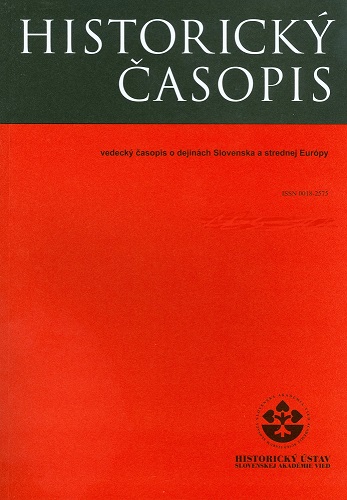The effect of the 1885 reform of the Upper House of the Hungarian Parliament on the composition of the members
The effect of the 1885 reform of the Upper House of the Hungarian Parliament on the composition of the members
(with a special focus on hereditary peers)
Author(s): Veronika Tóth-BarbalicsSubject(s): History, 19th Century
Published by: SAV - Slovenská akadémia vied - Historický ústav SAV
Keywords: Hungary; Upper House; Act VII of 1885; Hereditary peer; Land census tax; Opting; Member appointed for life
Summary/Abstract: The law on the reform of the Upper House (Act VII of 1885) caused significant changes in the number and composition of the members of the second chamber. Of the members to that point, lord-lieutenants and Roman Catholic titular bishops lost their membership. The new conditions for hereditary members to practice the right of membership, and for new high noble families to attain this right, were Hungarian citizenship and the payment of a 3.000 Forint land census tax. Further, high nobles with the right to be members in foreign legislative institutions had to make a statement on opting. Calvinist denomination leaders and those appointed by the King on the recommendation of the government for personal merit became new membership groups. Further, in a one-time move in the spring of 1885, before executing the reform, the Upper House elected fifty members - from among peers who were to lose their membership – as lifelong members. The connection of hereditary membership rights to land ownership and the rewarding of personal activity with lifelong membership were unique aspects of the bourgeois age. Despite this, feudal-based elements maintained their majority in the composition of the Upper House. The number of hereditary peers declined from more than 700 to 200, but even so, they comprised 60% of the total members. The change in the circle of hereditary peers taking place in 1885 proved to be long-term: the numbers of such members succeeding in returning, and the numbers dropping out later, were low. Despite the fact the government had limited means to affect the composition of the membership, it still had a high degree of influence in the matter of granting membership before and after 1885. While the number of appointments was limited, practical reasons and considerations of principle meant that mass donations of hereditary membership were avoided.
Journal: Historický časopis
- Issue Year: 71/2023
- Issue No: 3
- Page Range: 473-491
- Page Count: 19
- Language: English

